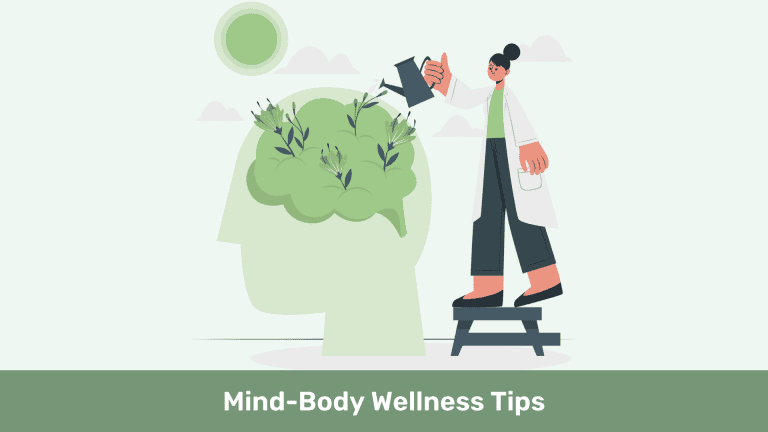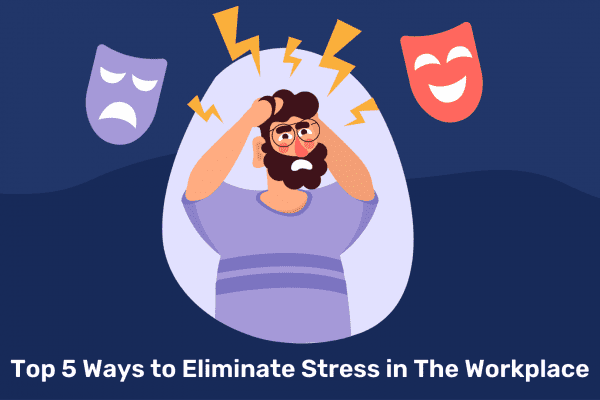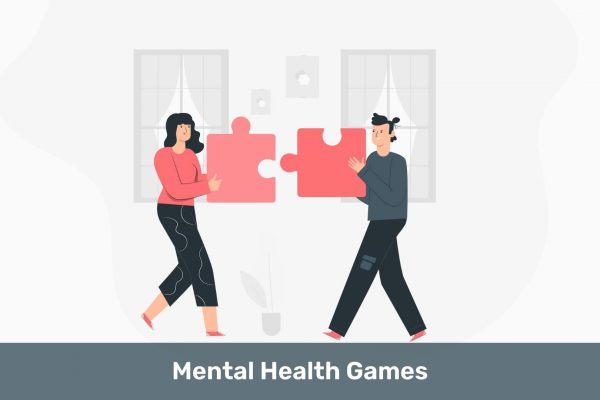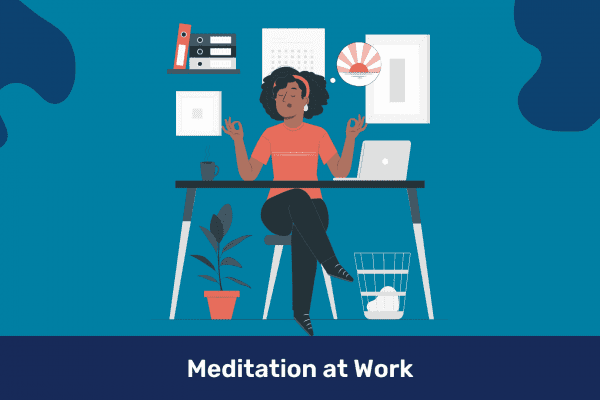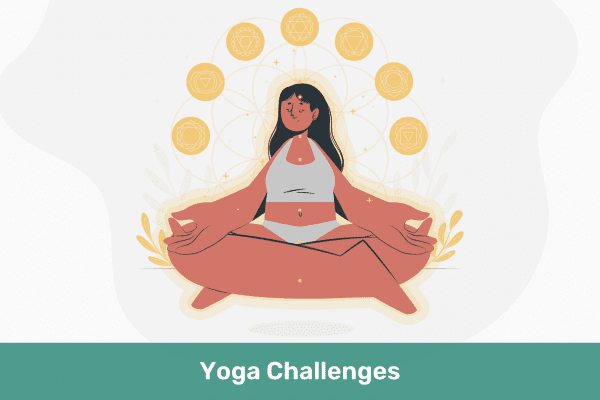Introduction
In our fast-paced and demanding world, achieving a state of well-being goes beyond physical fitness and extends into the intricate connection between the mind and body. The concept of mind-body wellness encapsulates the interdependence of mental and physical health, emphasizing the profound impact each has on the other.
As we delve into the realm of mind-body wellness, it’s clear that achieving a harmonious balance between mental and physical well-being is not only beneficial but essential for leading a fulfilling and healthy life.
What is Mind-Body Wellness?
Mind-body wellness represents a holistic approach to health that recognizes the intricate interplay between mental and physical factors. This approach is rooted in the understanding that the mind and body are interconnected, with each influencing the other’s well-being. Incorporating practices that promote harmony between the mind and body is a fundamental aspect of mind-body wellness.
This holistic perspective encompasses various elements such as mindfulness, emotional regulation, nutrition, exercise, and stress management. By addressing both mental and physical aspects, individuals can achieve a comprehensive sense of wellness that extends beyond the absence of illness.
Importance of Maintaining Balance in Mental and Physical Health
Research consistently underscores the significance of maintaining a delicate balance between mental and physical health. Studies show that an imbalance in either domain can have cascading effects, contributing to the development and exacerbation of various health conditions. For instance, chronic stress, often stemming from an imbalance in mental well-being, has been linked to increased risk factors for cardiovascular diseases, compromised immune function, and other physical ailments.
Conversely, physical health plays a pivotal role in mental well-being.
- Regular exercise has been associated with improved mood
- Reduced symptoms of anxiety and depression
- enhanced cognitive function.
Adequate sleep, proper nutrition, and hydration also contribute significantly to mental resilience and overall cognitive performance.
In the United States, the National Alliance on Mental Illness (NAMI) reports that nearly one in five adults experiences mental illness each year. The dual burden of mental and physical health challenges underscores the need for a comprehensive approach to wellness that addresses both aspects.
Achieving and maintaining balance in mental and physical health is not only crucial for individual well-being but also has broader societal implications. Healthy individuals are more productive, engaged, and resilient, contributing positively to their communities and workplaces. As we delve into the 11 mind-body wellness tips, it is essential to recognize the scientific evidence supporting the integration of mental and physical health practices for a more robust and resilient lifestyle.
Tip 1: Cultivate Mindfulness
Mindfulness, rooted in ancient contemplative traditions, has gained significant recognition in contemporary well-being practices. It involves purposefully bringing one’s attention to the present moment without judgment. Mindfulness encourages individuals to observe their thoughts and feelings without becoming entangled in them, fostering a heightened awareness of the present.
Benefits of Mindfulness:
- Mindfulness has been shown to reduce stress by promoting a non-reactive awareness of challenging situations, allowing individuals to respond more effectively.
- Regular mindfulness practice is associated with decreased symptoms of anxiety and depression, promoting overall mental well-being.
- Mindfulness training cultivates attention and concentration, leading to improved cognitive abilities and productivity.
- By observing emotions without immediate reaction, individuals can develop better emotional regulation and resilience.
- It is linked to various physical health benefits, including improved immune function, lower blood pressure, and better sleep quality.
Techniques for Incorporating Mindfulness into Daily Life:
Mindful Breathing:
- Find a quiet space.
- Focus on your breath, inhaling and exhaling slowly.
- If your mind wanders, gently bring your attention back to your breath.
Body Scan Meditation:
- Lie down or sit comfortably.
- Bring attention to different parts of your body, starting from toes to the top of your head.
- Notice any sensations without judgment.
Careful Observation:
- Choose an object (e.g., a flower, a candle).
- Observe it carefully, paying attention to details.
- Engage all your senses in the observation.
Mindful Walking:
- Take a leisurely walk, paying attention to each step.
- Notice the sensation of your feet lifting, moving, and making contact with the ground.
- Be aware of your surroundings.
Mindful Eating:
- Eat slowly and savor each bite.
- Pay attention to the taste, texture, and smell of the food.
- Be present with the experience of eating without distractions.
Guided Mindfulness Meditation:
- Use guided meditation apps or recordings.
- Follow the instructions of a guided voice, directing your attention and promoting relaxation.
Incorporating these mindfulness techniques into your daily routine can contribute to a greater sense of well-being. Consistent practice will deepen your mindfulness skills, allowing you to experience the multitude of benefits in various aspects of your life.
Tip 2: Prioritize Sleep
Connection Between Quality Sleep and Overall Well-being:
Quality sleep is not just a luxury; it is a cornerstone of optimal health and well-being. Research consistently highlights the intricate relationship between the quality of our sleep and various aspects of our physical and mental health.
Adequate and restful sleep is associated with improved mood, enhanced cognitive function, and a strengthened immune system. On the contrary, chronic sleep deprivation has been linked to an increased risk of developing conditions such as obesity, diabetes, cardiovascular diseases, and mental health disorders.
Understanding the profound impact of sleep on overall well-being underscores the importance of prioritizing and nurturing healthy sleep patterns. The body’s ability to repair, regenerate, and consolidate memories occurs predominantly during sleep, emphasizing its role in maintaining both physical and mental health.
Tips for Improving Sleep Hygiene and Creating a Restful Environment:
- Establish a Consistent Sleep Schedule: Maintaining a regular sleep-wake cycle helps regulate the body’s internal clock, promoting better sleep quality. Aim for a consistent bedtime and wake-up time, even on weekends.
- Create a Relaxing Bedtime Routine: Engage in calming activities before bedtime to signal to your body that it’s time to wind down. This may include reading, gentle stretching, or practicing relaxation techniques like deep breathing.
- Optimize Your Sleep Environment: Ensure your bedroom is conducive to sleep by keeping it cool, dark, and quiet. Invest in a comfortable mattress and pillows that support restful sleep.
- Limit Exposure to Screens Before Bed: The blue light emitted by screens can interfere with the production of the sleep hormone melatonin. Aim to reduce screen time at least an hour before bedtime.
- Watch Your Diet and Caffeine Intake: Avoid heavy meals, caffeine, and excessive liquids close to bedtime. These can disrupt sleep and contribute to discomfort during the night.
- Exercise Regularly: Regular physical activity can promote better sleep, but try to finish intense workouts a few hours before bedtime to allow your body to wind down.
- Manage Stress and Anxiety: Practice stress-reducing techniques, such as meditation or mindfulness, to calm the mind and reduce anxiety that may interfere with sleep.
- Limit Naps: If you need to nap during the day, keep it short (20-30 minutes) and avoid napping too close to bedtime.
Implementing these tips for improving sleep hygiene and creating a restful environment can significantly contribute to the enhancement of both the quality and quantity of your sleep, ultimately promoting overall well-being.
Tip 3: Nourish Your Body
In the pursuit of mind-body wellness, one of the cornerstones is the intentional and mindful nourishment of the body. A well-balanced and nutritious diet not only fuels the physical aspects of health but also plays a pivotal role in supporting cognitive function and emotional well-being.
Importance of a Balanced and Nutritious Diet:
The significance of maintaining a balanced and nutritious diet cannot be overstated in the realm of mind-body wellness. Research consistently highlights the profound impact of nutrition on various aspects of health, including cognitive function, mood regulation, and overall vitality. Consuming a variety of nutrient-dense foods provides the body with essential vitamins, minerals, antioxidants, and other compounds that support optimal physiological and psychological function.
A balanced diet contributes to the prevention of chronic diseases, supports immune function, and helps maintain a healthy weight—factors that are closely intertwined with mental well-being. Nutrient-rich foods, such as fruits, vegetables, whole grains, lean proteins, and healthy fats, provide the necessary building blocks for the body and mind to thrive. The avoidance of excessive processed foods, sugars, and unhealthy fats is crucial for preventing inflammation and promoting long-term health.
Specific Dietary Recommendations for Promoting Mind-Body Wellness:
- Omega-3 Fatty Acids for Brain Health: Incorporate sources of omega-3 fatty acids, such as fatty fish (salmon, mackerel, sardines), flaxseeds, and walnuts, to support brain health and cognitive function.
- Antioxidant-Rich Foods: Integrate a variety of colorful fruits and vegetables rich in antioxidants (e.g., berries, spinach, kale) to combat oxidative stress and promote overall health.
- Complex Carbohydrates for Sustained Energy: Choose whole grains (brown rice, quinoa, oats) to provide sustained energy levels, stabilize blood sugar, and support mood stability.
- Protein for Muscle and Mind: Include lean protein sources (chicken, turkey, tofu, legumes) to support muscle health and provide amino acids that play a role in neurotransmitter synthesis.
- Limit Processed and Sugary Foods: Minimize the consumption of processed foods, sugary beverages, and excessive refined sugars, as they can contribute to inflammation and negatively affect mental health.
By prioritizing a nutritionally sound and diverse diet, individuals can empower themselves to not only meet their physical health goals but also nurture the cognitive and emotional aspects of their well-being. Making informed and mindful choices about what we consume lays the foundation for a holistic approach to mind-body wellness.
Tip 4: Stay Hydrated
The Role of Hydration in Physical and Mental Health:
Proper hydration is a cornerstone of overall well-being, playing a crucial role in maintaining both physical and mental health. Water is a fundamental component of the human body, constituting a significant percentage of our organs, tissues, and cells. Its impact extends far beyond quenching thirst; adequate hydration is essential for various physiological functions.
- Cognitive Function: Research suggests that dehydration can impair cognitive function, affecting concentration, alertness, and short-term memory. Even mild dehydration may lead to decreased mental performance, emphasizing the need for sustained hydration to support optimal brain function.
- Mood Regulation: Hydration has been linked to mood regulation, with studies indicating that even mild dehydration can influence mood and increase feelings of anxiety and irritability. Maintaining proper hydration levels may contribute to a more stable and positive emotional state.
- Physical Performance: Hydration is vital for sustaining physical performance. Whether engaging in exercise or daily activities, adequate fluid intake helps regulate body temperature, lubricate joints, and transport nutrients throughout the body, enhancing overall physical function.
- Detoxification: Water plays a key role in the body’s natural detoxification processes, aiding in the elimination of waste products and toxins. Proper hydration supports the functioning of the kidneys and liver, essential organs for detoxification.
How to Maintain Adequate Hydration Throughout the Day:
Ensuring consistent hydration involves more than simply drinking water; it requires mindful practices and an understanding of individual needs. Here are practical tips to maintain adequate hydration throughout the day:
- Set a Schedule: Establish regular intervals for hydration, aiming to consume water consistently throughout the day. Consider setting reminders or incorporating hydration breaks into your daily routine.
- Carry a Reusable Water Bottle: Keep a reusable water bottle with you wherever you go. This provides a convenient and environmentally friendly way to access water, encouraging consistent sipping throughout the day.
- Monitor Urine Color: Use the color of your urine as a simple indicator of hydration status. A pale yellow color suggests adequate hydration, while dark yellow may indicate the need for more fluids.
- Flavor Infusions: If plain water feels monotonous, enhance its appeal by infusing it with natural flavors. Add slices of citrus fruits, cucumber, or herbs for a refreshing taste without added sugars or artificial ingredients.
- Hydrate Before, During, and After Exercise: Be proactive about hydration, especially when engaging in physical activity. Drink water before, during, and after exercise to replace fluids lost through sweat.
- Include Hydrating Foods: Incorporate hydrating foods into your diet, such as water-rich fruits and vegetables. Watermelon, cucumber, oranges, and celery are excellent choices that contribute to both hydration and nutrition.
By recognizing the multifaceted role of hydration in supporting physical and mental well-being and implementing practical strategies for adequate fluid intake, individuals can take a proactive approach to optimize their overall health.
Tip 5: Regular Exercise
Benefits of Physical Activity for Both the Mind and Body:
Engaging in regular exercise is a cornerstone of mind-body wellness, offering a myriad of benefits that extend beyond physical fitness. Scientific research consistently highlights the positive impact of physical activity on mental health and cognitive function.
- Exercise stimulates the production of endorphins, often referred to as “feel-good” hormones, which can contribute to an improved mood and reduced symptoms of anxiety and depression.
- Physical activity acts as a natural stress reliever by lowering the levels of stress hormones, such as cortisol. Regular exercise can help manage and alleviate the pressures of daily life.
- Establishing a consistent exercise routine has been linked to better sleep patterns. Quality sleep is crucial for cognitive function, emotional well-being, and overall vitality.
- Exercise has been shown to enhance cognitive function, including improved memory, attention, and learning. It promotes neuroplasticity, the brain’s ability to adapt and reorganize itself.
- Achieving fitness goals, no matter how small, can positively impact self-esteem and body image. Regular exercise fosters a sense of accomplishment and self-efficacy.
Simple and Effective Exercise Routines for Various Fitness Levels:
Creating a sustainable exercise routine doesn’t require a one-size-fits-all approach. Tailoring activities to individual fitness levels and preferences ensures that the benefits of exercise are accessible to everyone. Here are simple and effective exercise routines suitable for various fitness levels:
Low-Intensity Exercise:
- Walking: Start with a brisk walk for 30 minutes a day. Gradually increase the duration and pace.
- Yoga: Incorporate gentle yoga poses and stretches to improve flexibility and promote relaxation.
Moderate-Intensity Exercise:
- Jogging or Running: Begin with a mix of jogging and walking, gradually increasing running time.
- Cycling: Enjoy the benefits of cycling, either outdoors or on a stationary bike, for cardiovascular health.
High-Intensity Exercise:
- High-Intensity Interval Training (HIIT): Short bursts of intense exercise alternated with periods of rest can be effective for calorie burning and cardiovascular fitness.
- Bodyweight Workouts: Incorporate exercises like squats, lunges, and push-ups for strength training.
Flexibility and Balance:
- Pilates: Focus on core strength and flexibility through Pilates exercises.
- Tai Chi: This low-impact exercise improves balance, flexibility, and relaxation.
Remember to consult with a healthcare professional or fitness expert before starting a new exercise regimen, especially if you have any pre-existing health conditions. Consistency is key, and finding activities that bring joy and satisfaction ensures that exercise becomes a sustainable and enjoyable part of your mind-body wellness journey.
Tip 6: Foster Positive Relationships
Human beings are inherently social creatures, and the quality of our social interactions has a profound impact on our mental well-being. Numerous studies have consistently highlighted the strong correlation between positive social connections and mental health.
Engaging in meaningful relationships can contribute to lower levels of stress, increased feelings of happiness, and a greater sense of purpose in life. Social interactions stimulate the release of oxytocin and serotonin—neurotransmitters associated with positive emotions and overall well-being.
Strategies for Building and Maintaining Positive Relationships:
- Active Listening: Demonstrate genuine interest in others by actively listening to their thoughts and feelings. This not only deepens your connection but also fosters a sense of being heard and understood.
- Communication Skills: Effective communication is vital for maintaining positive relationships. Be clear and assertive in expressing your thoughts and emotions while also being receptive to the perspectives of others.
- Empathy: Put yourself in the shoes of others to understand their feelings and experiences. Empathy builds a strong foundation for compassion and support in relationships.
- Quality Time: Invest time in meaningful interactions. Whether it’s a deep conversation, shared activities, or simply spending time together, quality moments strengthen the bonds of relationships.
- Conflict Resolution: Conflicts are inevitable, but how they are managed defines the health of a relationship. Develop healthy conflict-resolution skills, emphasizing understanding and compromise.
- Express Gratitude: Regularly express appreciation for the people in your life. Acknowledging the positive aspects of your relationships reinforces a sense of mutual value.
- Set Boundaries: Establishing clear boundaries is essential for maintaining healthy relationships. It ensures that both parties feel respected and allows for individual growth within the relationship.
By understanding the profound impact of positive social connections on mental well-being and implementing these strategies, individuals can cultivate and nurture relationships that contribute to a fulfilling and emotionally enriching life. Fostering positive relationships is not only a tip for mind-body wellness but a cornerstone for overall life satisfaction.
Tip 7: Manage Stress
Stress, an inevitable part of life, can profoundly impact both mental and physical well-being. When the body perceives a threat, the stress response is activated, releasing hormones such as cortisol and adrenaline. While this response is crucial for dealing with immediate challenges, chronic stress can lead to a range of detrimental effects on mind-body wellness.
- Mental Health Implications: Prolonged stress is associated with an increased risk of anxiety, depression, and other mood disorders. It can impede cognitive function, affecting memory, concentration, and decision-making. Chronic stress may contribute to the development of mental health conditions, underscoring the need for effective stress management.
- Physical Health Consequences: The impact of stress extends beyond the mind, manifesting in physical symptoms. Chronic stress is linked to cardiovascular problems, compromised immune function, gastrointestinal issues, and exacerbated inflammatory responses. Recognizing these connections emphasizes the importance of managing stress for overall health.
Stress-Management Techniques:
Given the pervasive influence of stress on mind-body wellness, adopting effective stress-management techniques is crucial. Incorporating these strategies into daily life can mitigate the negative effects of stress and promote a healthier overall state.
- Mindfulness Meditation: Mindfulness meditation involves paying attention to the present moment without judgment. Studies suggest that practicing mindfulness reduces stress, anxiety, and improves overall mental well-being.
- Deep Breathing Exercises: Deep breathing activates the body’s relaxation response, counteracting the stress response. Research indicates that diaphragmatic breathing can reduce stress levels and enhance emotional well-being.
- Physical Exercise: Regular physical activity is a powerful stress management tool. Exercise releases endorphins, the body’s natural mood lifters, and contributes to improved sleep, further reducing stress.
- Cognitive-Behavioral Therapy (CBT): CBT is a therapeutic approach proven effective in managing stress. It helps individuals identify and change negative thought patterns, leading to improved coping strategies.
- Time Management and Prioritization: Effective time management and setting priorities can reduce feelings of overwhelm, helping individuals better cope with stressors in their daily lives.
Incorporating these stress-management techniques into one’s routine empowers individuals to proactively address the impact of stress on both the mind and body. By cultivating resilience and adopting healthy coping strategies, individuals can enhance their overall mind-body wellness and build a foundation for long-term health.
Tip 8: Practice Gratitude
Benefits of Cultivating a Gratitude Mindset:
Cultivating a gratitude mindset has far-reaching positive effects on both mental and physical well-being. Numerous studies have demonstrated that regularly expressing gratitude can significantly impact various aspects of life. Some key benefits include:
- Improved Mental Health: Gratitude has been linked to a reduction in symptoms of depression and anxiety. By focusing on positive aspects of life, individuals can shift their mindset and experience improved emotional well-being.
- Enhanced Physical Health: Gratitude practices have been associated with better physical health outcomes, including lower blood pressure, improved immune function, and better sleep quality. The mind-body connection is evident as a grateful mindset positively influences physiological processes.
- Strengthened Relationships: Expressing gratitude fosters a positive and appreciative atmosphere in relationships. Acknowledging and appreciating others can strengthen social bonds, leading to more fulfilling connections with family, friends, and colleagues.
- Increased Resilience: It serves as a coping mechanism during challenging times. Individuals with a gratitude mindset tend to exhibit greater resilience, bouncing back more effectively from stressors and adversity.
Ways to Incorporate Gratitude Practices into Daily Life:
- Gratitude Journaling: Set aside a few minutes each day to write down three things you are grateful for. This simple practice can shift your focus towards the positive aspects of life.
- Express Gratitude to Others: Take the time to express appreciation to people around you. This could be through verbal thanks, a handwritten note, or a thoughtful gesture. Acknowledging others’ contributions enhances your own sense of gratitude.
- Mindful Reflection: Incorporate gratitude meditation sessions. During these practices, intentionally reflect on aspects of your life for which you are grateful, fostering a sense of presence and appreciation.
- Gratitude Rituals: Create daily or weekly rituals that remind you to be grateful. This could include expressing thanks before meals, reflecting on positive moments before bedtime, or incorporating gratitude into morning routines.
- Gratitude Challenges: Challenge yourself to find something new to be grateful for each day. This encourages a proactive approach to seeking and acknowledging positive elements in your life.
- Create a Gratitude Jar: Place a jar in a visible location and add notes of gratitude whenever something positive happens. Periodically review the notes to reinforce a sense of appreciation.
Incorporating these gratitude practices into your daily life can contribute significantly to your overall well-being. By fostering a mindset of appreciation, you not only enhance your mental and physical health but also contribute to a more positive and fulfilling lifestyle.
Tip 9: Engage in Relaxation Techniques
In the hustle and bustle of modern life, incorporating relaxation techniques into our routine is paramount for mitigating stress and promoting overall well-being. Relaxation methods encompass a variety of practices that help calm the mind, reduce tension, and induce a state of tranquility.
Incorporating Relaxation into a Busy Schedule:
In a world filled with constant demands and tight schedules, carving out time for relaxation may seem challenging, but it is crucial for maintaining mental equilibrium. Here are practical strategies for incorporating relaxation into a busy daily schedule:
- Micro-breaks: Take short breaks throughout the day for a few minutes of deep breathing or a quick mindfulness exercise.
- Time Blocking: Dedicate specific time slots in your schedule for relaxation activities. Treat these slots as non-negotiable appointments.
- Mindful Commuting: Use commute time for relaxation. Practice deep breathing or listen to calming music or guided meditations during transit.
- Digital Detox: Designate specific periods to disconnect from digital devices. Use this time for relaxation activities without interruptions.
- Lunchtime Rituals: Use part of your lunch break for a short walk, meditation, or other relaxation practices.
- Create a Relaxation Corner: Designate a small space at home or work for relaxation. It could be as simple as a comfortable chair or a cushioned area for stretching.
Incorporating relaxation into a busy schedule requires intention and commitment. By recognizing the value of these moments for mental and physical well-being, individuals can transform even the busiest days into opportunities for rejuvenation and balance.
Tip 10: Disconnect from Technology
In an era dominated by digital connectivity, the impact of technology on our mental health cannot be understated. Excessive screen time has been associated with a myriad of negative effects, ranging from increased stress and anxiety to disruptions in sleep patterns. Recognizing the importance of disengaging from technology is a crucial aspect of mind-body wellness.
The Impact of Excessive Screen Time on Mental Health:
Research has illuminated the multifaceted impact of prolonged screen exposure on mental well-being. Extended use of digital devices, such as smartphones, computers, and tablets, has been linked to heightened levels of stress, anxiety, and even symptoms of depression. The constant influx of information, notifications, and the pressure to stay connected can contribute to a sense of information overload, leading to cognitive fatigue and decreased overall mental resilience.
Moreover, the blue light emitted by screens can interfere with circadian rhythms, disrupting sleep patterns and contributing to difficulties in falling asleep. This, in turn, can exacerbate stress and impact mood regulation. The pervasive nature of technology in our daily lives underscores the importance of establishing mindful boundaries to protect our mental well-being.
Practical Tips for Setting Boundaries with Technology Use:
- Establish Tech-Free Zones: Designate specific areas in your home, such as the bedroom or dining area, as tech-free zones. This helps create physical boundaries and encourages more mindful, present interactions.
- Implement Screen Time Limits: Leverage the built-in features on devices to set daily limits on screen time. This proactive approach helps in curbing excessive usage and encourages intentional breaks from digital screens.
- Turn Off Notifications: Disable non-essential notifications to reduce the constant influx of information. This minimizes the urge to check your device impulsively and allows for more focused, uninterrupted periods of work or leisure.
- Promote Digital-Free Wind Down: Establish a technology-free wind-down routine before bedtime. Engaging in activities like reading a physical book or practicing relaxation techniques can contribute to better sleep quality.
By proactively addressing the impact of technology on our mental health and implementing practical strategies to set boundaries, individuals can reclaim a sense of control over their digital habits. Disconnecting from technology is a mindful choice that fosters a healthier balance between the virtual and the real, contributing to overall mind-body wellness.
Tip 11: Embrace Joy and Leisure
Importance of Incorporating Joy into Daily Life:
In the pursuit of mind-body wellness, one often overlooked yet crucial element is the cultivation of joy in our daily lives. Joy is not merely a fleeting emotion but a powerful catalyst for positive mental and physical health outcomes. Research indicates that experiencing joy on a regular basis can contribute to stress reduction, improved immune function, and a heightened sense of overall well-being. By consciously integrating joy into our routines, we not only enhance our mental resilience but also pave the way for a more fulfilling and vibrant existence.
Leisure Activities Examples
- Creative Expression Activities: Engaging in creative pursuits such as painting, writing, or playing a musical instrument provides an outlet for self-expression. These activities stimulate the mind, foster a sense of accomplishment, and offer a unique avenue for relaxation.
- Nature Immersion: Spending time in nature has been linked to numerous health benefits. Whether it’s a leisurely hike, a stroll in the park, or simply enjoying the outdoors, connecting with nature promotes mental clarity, reduces stress, and invigorates the body.
- Social Leisure: Spending quality time with friends and loved ones contributes significantly to our emotional well-being. Engaging in social activities, be it a game night, a shared meal, or a simple conversation, strengthens our support systems and enhances overall happiness.
- Laughter Therapy: Laughter is a natural stress reliever. Participating in activities that induce laughter, such as watching a comedy show, attending a laughter yoga class, or spending time with people who bring joy, can have positive effects on both mental and physical health.
- Holistic Wellness Retreats: Consider participating in wellness retreats that offer a combination of activities like meditation, yoga, and spa treatments. These retreats provide an immersive experience to rejuvenate the mind and body.
By intentionally embracing joy and incorporating leisure activities that align with our passions and preferences, we not only add richness to our lives but also foster a profound sense of well-being that radiates through both our mental and physical states. This intentional pursuit of joy becomes a cornerstone in the holistic approach to mind-body wellness.
Conclusion
In the pursuit of holistic well-being, the incorporation of 11 mind-body wellness tips emerges as a comprehensive guide to fostering balance and vitality in our lives. By recognizing the intricate connection between mental and physical health, we empower ourselves to make conscious choices that contribute to a harmonious existence.
As we reflect on these tips, it’s evident that achieving mind-body wellness is a journey of intentional practices and self-care. Each tip serves as a building block, creating a solid foundation for a life marked by resilience, fulfillment, and joy.
For individuals seeking to embark on or enhance their mind-body wellness journey, Woliba stands as a valuable ally. With its extensive library of resources, Woliba offers a wealth of information, insights, and actionable strategies to support individuals at every step. From mindfulness techniques to nutritional guidance, exercise routines, and tips for embracing joy, Woliba’s curated content provides a roadmap for cultivating a holistic sense of well-being.
Contact us now to discover how Woliba can be your guide in achieving sustainable and meaningful mind-body wellness. Your well-being is our priority—take the first step towards a healthier, more fulfilling life today.

